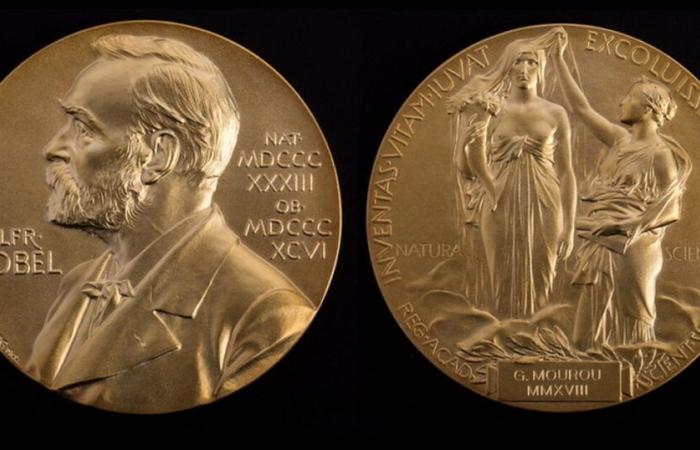At the origin of this shocking proposal, a misunderstood Swedish parliamentarian intended above all to denounce the hypocrisy of some of these people.
Of all the awards given by the Nobel Institute, it is undoubtedly the most scrutinized and the most symbolic: each year, the Nobel Peace Prize rewards, in the words of the association itself, “the personality or the community having contributed the most or best to the rapprochement of peoples, to the suppression or reduction of standing armies, to the assembly and propagation of progress for peace.” If some of its winners may have caused debate in the past, this is even more true of certain names which may have been associated with it in the past: Benito Mussolini in 1935, Joseph Stalin in 1945 and 1948, and especially Adolf Hitler, whose name was mentioned in the Nobel Peace Prize discussions in 1939.
How are the personalities nominated for the Nobel Peace Prize designated?
The term “nominated for the Nobel Peace Prize” is in reality abusive since the Alfred Nobel Institute does not itself nominate candidates for the prizes it awards each year, which also applies to the most publicized of its awards. . However, the operation of the Nobel Peace Prize is a little different from that of the other Nobel Prizes: the prize is awarded by a special committee appointed by the Norwegian parliament, while the other Nobel committees are chosen by the Swedish parliament. This college of around ten personalities will receive during the deliberations hundreds of proposals from personalities from all over the world and from diverse backgrounds: parliamentarians, emeritus university professors in law or political science, senior magistrates, former winners of the prize Nobel Peace Prize… The committee is responsible for remembering 199reduced to five names for the vote held in October, the prize being awarded every February 1st.
Who nominated Adolf Hitler for the 1939 Nobel Peace Prize?
It is therefore sufficient for an authorized person to submit a name to the Norwegian Nobel Committee for a public figure to be improperly considered as “nominated for the Nobel Peace Prize”. On February 1, 1939, a few months after the annexation of Austria and the invasion of the Sudetenland, the beginnings of the Second World War, the parliamentarian Eric Brandt causes amazement by proposing the name of Adolf Hitler for the Nobel Peace Prize. Brandt, however, is in no way a Nazi sympathizer: a Swedish social-democrat and convinced anti-fascist, this son of a pastor actually intends to denounce some of his colleagues having proposed the name of Neville Chamberlain, the British Prime Minister. Chamberlain was notably at the origin of the Munich agreements which, under the pretext of wanting to avoid the outbreak of a war which would eventually arrive a few months later, legitimized the annexation of part of Czechoslovakia by Hitler, described with a lot of irony from a man invested with an “ardent love for peace”.
Who won the Nobel Peace Prize in 1939?
Erik Brandt's request was misunderstood and very poorly received, to the point that Brandt decided to withdraw his proposal himself. However, he was not the first to dare such a provocation: in 1934, the writer Gertrude Stein did the same. Obviously, it seems inconceivable that the name of Adolf Hitler could even have been part of the first list of 199 names retained and, even more inconceivable, that the Nazi dictator won. Anyway, Hitler held a tenacious grudge against the Nobel committee since he had awarded the Nobel Peace Prize in 1936 to the German pacifist writer and fervent anti-Nazi Carl von Ossietzky.to the point of ordering any German citizen awarded a Nobel to refuse the distinction. The 1939 Nobel Peace Prize was ultimately not awarded, since no distinction was awarded during the Second World War.
Sources :
You may also be interested in:
Who nominates candidates for the Nobel Prize?
Private Nobel laureates, prizes refused…Behind the scenes of the Nobel Prize
Is it true that the Fanta drink was invented under Hitler?
If Napoleon and Hitler lost in Russia, it was (also) because of mushrooms






